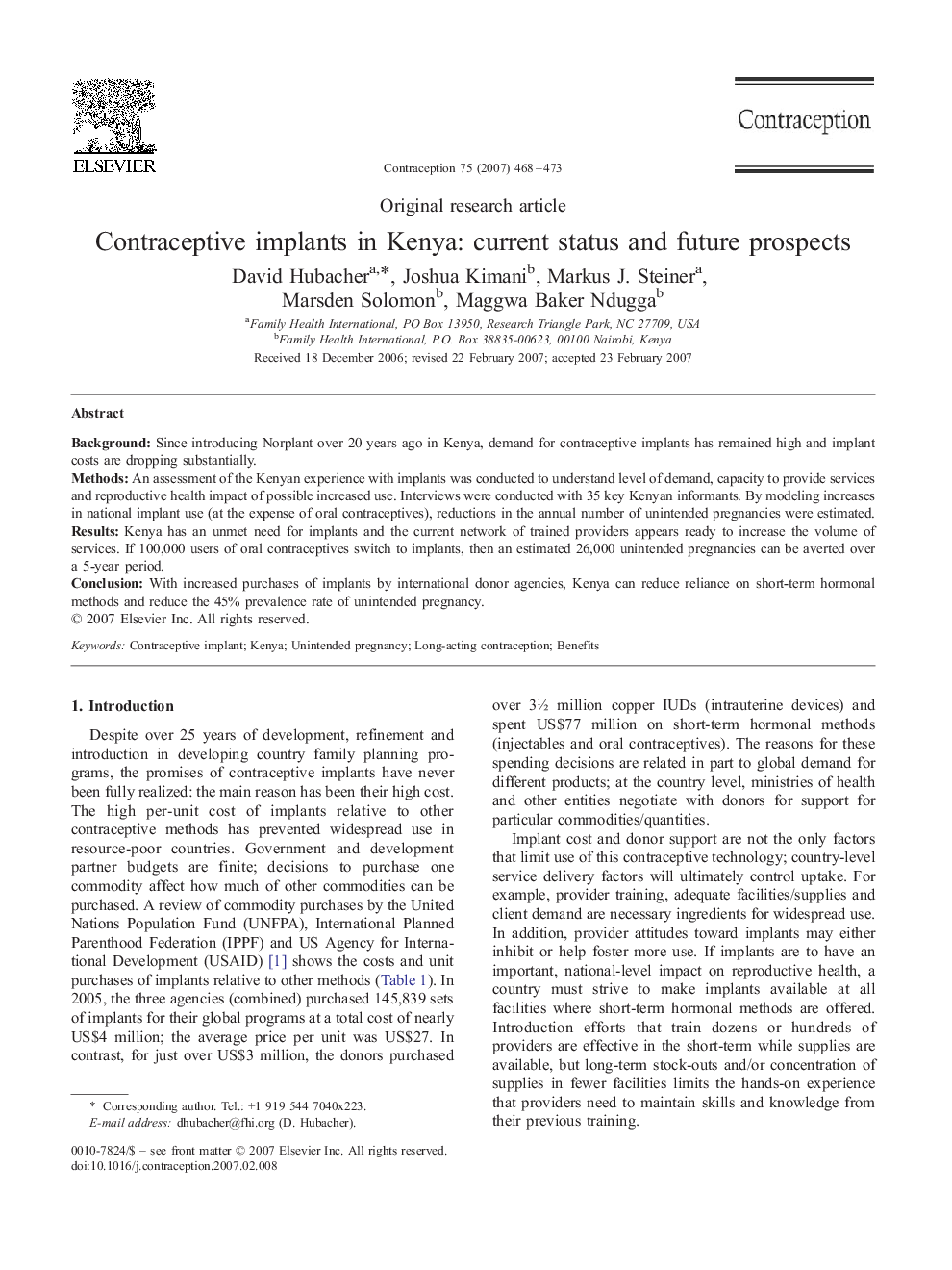| Article ID | Journal | Published Year | Pages | File Type |
|---|---|---|---|---|
| 3915661 | Contraception | 2007 | 6 Pages |
BackgroundSince introducing Norplant over 20 years ago in Kenya, demand for contraceptive implants has remained high and implant costs are dropping substantially.MethodsAn assessment of the Kenyan experience with implants was conducted to understand level of demand, capacity to provide services and reproductive health impact of possible increased use. Interviews were conducted with 35 key Kenyan informants. By modeling increases in national implant use (at the expense of oral contraceptives), reductions in the annual number of unintended pregnancies were estimated.ResultsKenya has an unmet need for implants and the current network of trained providers appears ready to increase the volume of services. If 100,000 users of oral contraceptives switch to implants, then an estimated 26,000 unintended pregnancies can be averted over a 5-year period.ConclusionWith increased purchases of implants by international donor agencies, Kenya can reduce reliance on short-term hormonal methods and reduce the 45% prevalence rate of unintended pregnancy.
